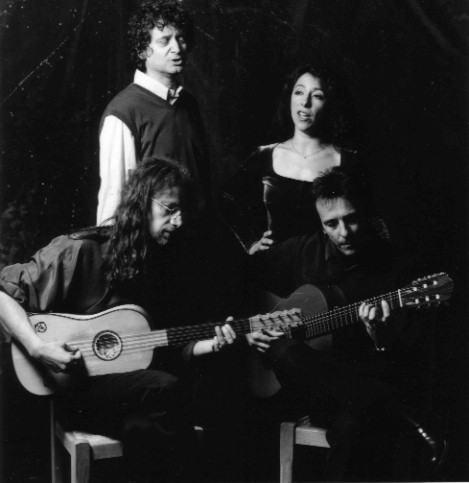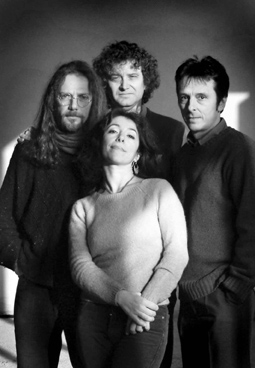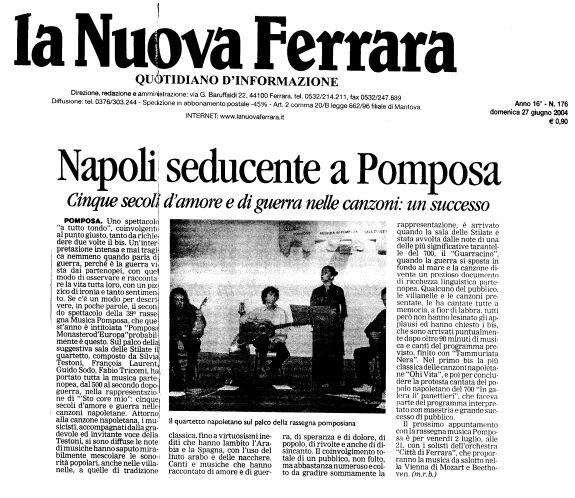| |
TECHNICAL SCHEDULE
The concert of Sto core mio can be carried out without amplification in
halls of no excessive large size and equipped of suitable acoustic or
in particularly propitious for listening courtyards or cloisters. The
indications that follow are worth for halls or large theatres or for open
spaces, with no propitious acoustic.
AUDIO:
The described systems will have to be mount to you and verified before
the arrival of the musicians. The technicians of stage and room (and a
responsible of the preparation) will have moreover to be there during
all the duration of the rehearsals and of the concert.
FOH:
High quality system of spread (Meyer CQ1, UPA1C + Sub, d&b C4 (o C7)
+ Sub, EAW, EV Deltamax,ecc.) positioned so as to have uniform cover on
all the restricted area to the public. Systems disposed so as to have
one the most possible homogenous distribution of the sonorous pressure
(as an example by means of suspension or positioning to one sufficient
height) are preferred.
- Mixer with feeding phantom
- Digital reverberation (Lexicon PCM70 o 90, KT 780, Yamaha SPX990, ecc.)
- Stereophonic grafic Equalizzatore 31 bands o parametric (KT DN360, BSS
Varicurve, SCV, ecc.)
- 2 Ch. compression (DBX160, DBX166, Drawmer, BSS DPR404, Behringer Composer,
ecc.)
MONITOR:
2 wedge monitor on independent lines
ADVISED CHANNELS AND MICROPHONES:
10 Chitarra François Mic Neumann KM184, AKG C480, AKG C535 COMP
11 Plettri/Chit. Guido Mic Neumann KM184, AKG C480, AKG C535
12 Vox Guido Headset supplied from them
13 Vox Silvia Neumann KSM105, AKG C535, Shure Beta 87 COMP
14 Plettri/Chit. Fabio Mic Neumann KM184, AKG C480, AKG C535
15 Zarb Neumann KM184, AKG C480, AKG C414, AKG 3000
16 Tamburello Shure SM58
17 REV1L
18 REV1R
19 REV2L
20 REV2R
NB: On open air all the condenser microphones must be supplied of anti-wind
ear-phones.
It is possible to modify something, but it is necessary to establish it
previously.
Phonic: Corrado Cristina tel. (+39) 348 2208543 corradocristina@iol.it
LIGHTS
|











